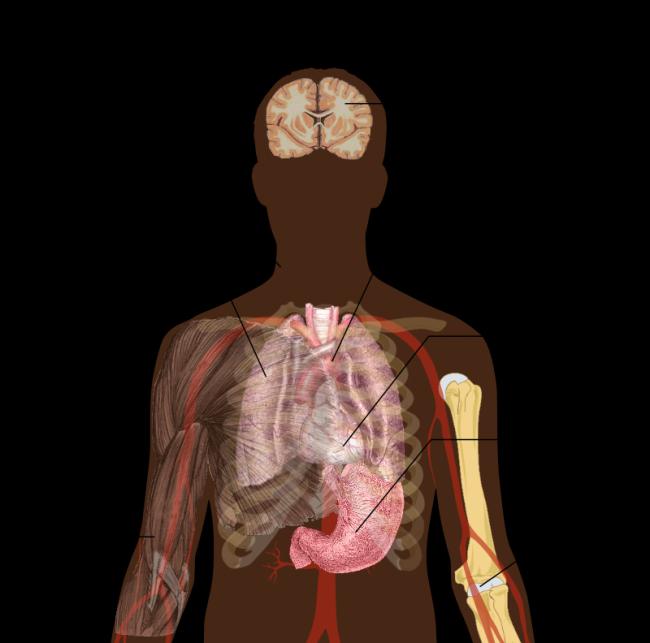
Antimicrobial therapy can prevent sepsis in pneumonia patients: Study
London, Apr 17 (IBNS): Antimicrobial therapy targeting specific cells in the immune system could prevent sepsis and life-threatening disease in people suffering from pneumonia, new research led by Leicester scientists has shown.
An antimicrobial therapy kills or inhibits the growth of microorganisms such as bacteria, fungi, or protozoans.
The research, published in Nature Microbiology, identifies how the bacterium which causes pneumonia replicates within our immune system during the initial stages of infection.
A team of researchers was led by Professor Marco Oggioni from the University of Leicester’s Department of Genetics and Genome Biology, working with Professor Ashley Dennison, hepatobiliary and pancreatic surgeon at Leicester's Hospitals.
They found that shortly after initial infection, the bacterium Streptococcus pneumoniae (pneumococcus) replicates within a certain subset of immune cells in our bodies - a subset of splenic macrophages - before causing invasive and often fatal disease.
This intracellular replication protects the bacterium from being killed by other immune cells and also from the activity of the most commonly used antibiotics, including those recommended for community acquired pneumonia in the UK.
The research also shows that antimicrobial therapy, specifically targeted to abort this phase of intracellular replication, can prevent the occurrence of pneumococcal septicaemia, which is common in many patients suffering from pneumonia.
Pneumonia is one of the leading causes of mortality by infectious disease and is more common in certain at-risk groups of people, such as the very young or the elderly.
“Understanding infections is important in determining how best to treat an infection,” says Professor Marco Oggioni, who is also an honorary consultant biologist at Leicester’s Hospitals. “Our work shows that we can treat potentially deadly infections more effectively using antibiotics that are already available.
“By discovering the mechanism of how and where bacteria initiate disease, we think we can give a strong message to the medical community to stimulate the revision of currently used therapies and this could potentially result in a reduction of disease burden and mortality in the UK and elsewhere.”
The team conducted its experiments on a variety of different organisms using confocal microscopy. This allowed them to tag and visualise different immune cells as well as the infecting bacteria.
As part of this work the team also developed a new model using the surplus spleens of pigs processed for food production.
This allowed for them to study infection in a model highly related to humans but without the need to infect a living animal.
The research, which was funded as part of a collaboration with the University of Oxford, also involved Professor Peter Andrew from the University of Leicester’s Department of Infection, Immunity and Inflammation and Professor Chris Bayliss from the University of Leicester’s Department of Genetics and Genome Biology, the immunologist Luisa Martinez-Pomares from the University of Nottingham and the expert in bacterial pathogenesis Richard Moxon from the University of Oxford.
Image: Wikimedia Commons
Support Our Journalism
We cannot do without you.. your contribution supports unbiased journalism
IBNS is not driven by any ism- not wokeism, not racism, not skewed secularism, not hyper right-wing or left liberal ideals, nor by any hardline religious beliefs or hyper nationalism. We want to serve you good old objective news, as they are. We do not judge or preach. We let people decide for themselves. We only try to present factual and well-sourced news.







